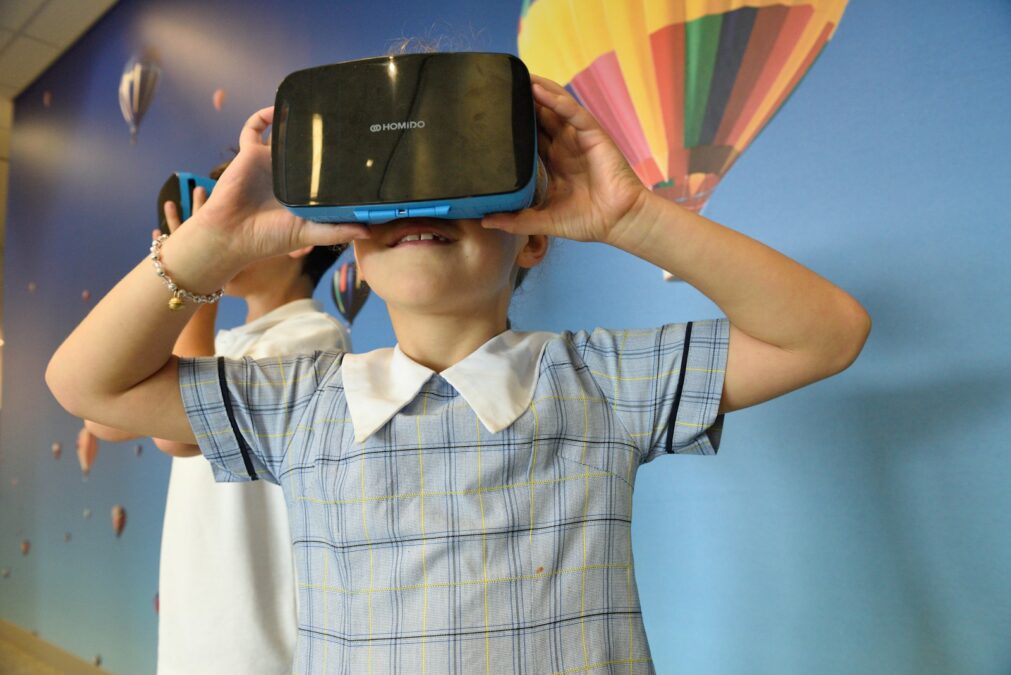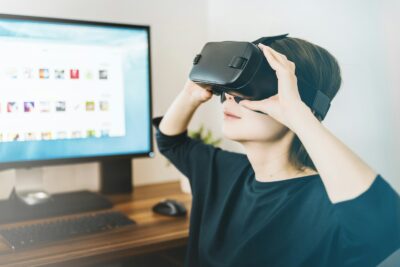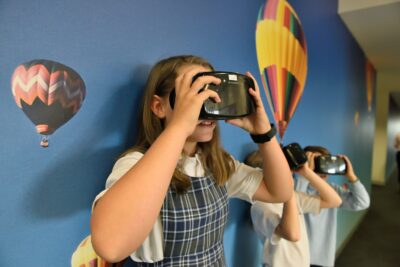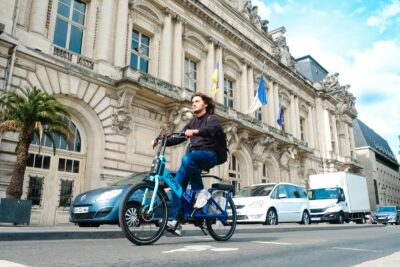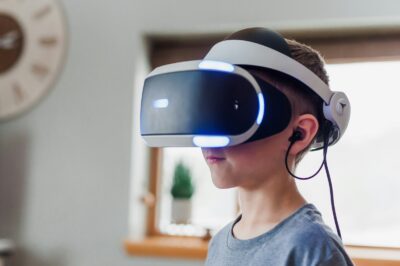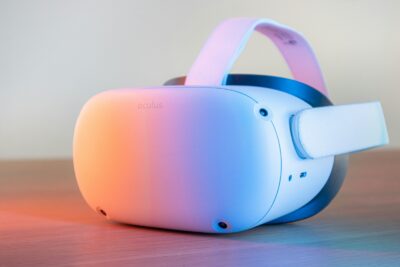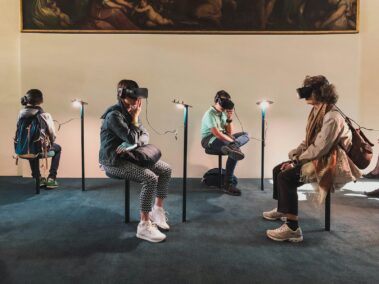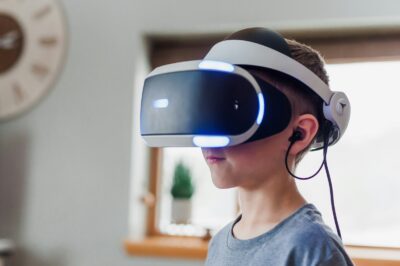Revolutionizing Classrooms with 5G and Virtual Reality
The Power of 5G in Education
The integration of 5G technology in education is set to revolutionize the learning experience, with 5G-enabled virtual reality learning tools at the forefront of this transformation. The ultra-fast speeds and low latency of 5G networks make it possible to deliver immersive and interactive educational content seamlessly. In cities like Riyadh and Dubai, where there is a strong emphasis on educational innovation and technological advancement, the adoption of 5G in classrooms is expected to enhance student engagement and improve learning outcomes significantly.
5G technology supports the transmission of large amounts of data in real-time, which is essential for VR applications in education. With 5G, students can experience virtual field trips, historical re-enactments, and complex scientific simulations without the delays and interruptions associated with slower networks. This capability opens up new possibilities for experiential learning, allowing students to explore and interact with educational content in ways that were previously unimaginable.
Furthermore, the deployment of 5G networks in schools can facilitate the use of other advanced technologies, such as artificial intelligence (AI) and the Internet of Things (IoT), to create smart classrooms. These classrooms can adapt to the needs of individual students, providing personalized learning experiences and real-time feedback. In the UAE and Saudi Arabia, where educational excellence is a national priority, the implementation of 5G-enabled learning tools can help achieve the ambitious goals set for the education sector.
Immersive Learning with Virtual Reality
Virtual reality (VR) learning tools, powered by 5G technology, offer an immersive learning experience that can transform how students interact with educational content. In Riyadh and Dubai, where there is a strong focus on leveraging technology to enhance education, VR can provide students with a deeper understanding of complex subjects through interactive and engaging simulations. For example, students can explore ancient civilizations, conduct virtual chemistry experiments, or even practice medical procedures in a safe and controlled environment.
The use of VR in education can also promote active learning, where students are actively involved in the learning process rather than passively receiving information. This approach can improve retention and comprehension, as students are more likely to remember and understand concepts they have experienced firsthand. Additionally, VR can cater to different learning styles, providing visual, auditory, and kinesthetic learners with the tools they need to succeed.
In Dubai, the implementation of VR learning tools in schools is already underway, with several institutions piloting VR-based curricula. These initiatives are supported by the city’s robust 5G infrastructure, which ensures that VR content is delivered seamlessly and without interruptions. Similarly, in Riyadh, the government’s commitment to educational innovation has led to significant investments in 5G technology, paving the way for widespread adoption of VR in classrooms.
Challenges and Opportunities in Implementing 5G-Enabled VR
While the benefits of 5G-enabled VR learning tools are clear, there are several challenges that need to be addressed to ensure successful implementation. One of the primary challenges is the cost of VR equipment and 5G infrastructure. Schools and educational institutions in Riyadh and Dubai will need to invest in VR headsets, 5G routers, and other necessary hardware to take full advantage of this technology. However, these investments can be offset by the long-term benefits of improved educational outcomes and enhanced student engagement.
Another challenge is the need for professional development and training for educators. Teachers will need to be trained on how to effectively use VR tools in the classroom and integrate them into their lesson plans. In the UAE and Saudi Arabia, where there is a strong emphasis on teacher professional development, this challenge can be addressed through targeted training programs and workshops.
Despite these challenges, the opportunities presented by 5G-enabled VR learning tools are immense. By leveraging 5G technology, schools in Riyadh and Dubai can create innovative and engaging learning environments that prepare students for the future. Additionally, the use of VR can help bridge educational gaps, providing students in remote or underserved areas with access to high-quality educational content. In this way, 5G-enabled VR learning tools can contribute to a more equitable and inclusive education system.
The Future of Education with 5G and VR
Personalized Learning Experiences
The future of education with 5G and VR promises personalized learning experiences tailored to the needs and preferences of individual students. In smart classrooms equipped with 5G technology, AI algorithms can analyze student performance data in real-time and provide customized learning paths. This level of personalization can help address the diverse learning needs of students in Riyadh and Dubai, ensuring that each student receives the support and resources they need to succeed.
VR learning tools can also provide adaptive learning experiences, where the difficulty level and content are adjusted based on the student’s progress. For example, a student struggling with a particular concept can receive additional practice and support through interactive VR simulations, while advanced students can explore more challenging content. This adaptive approach can help maximize student potential and foster a love of learning.
Collaborative Learning and Global Classrooms
5G-enabled VR learning tools can facilitate collaborative learning experiences, allowing students to work together on projects and assignments in virtual environments. In Riyadh and Dubai, where collaboration and teamwork are highly valued, VR can provide students with the opportunity to develop these essential skills. For example, students can participate in virtual science labs, where they work together to conduct experiments and analyze results.
Moreover, 5G technology can connect classrooms across the globe, creating opportunities for cross-cultural learning and collaboration. Students in Riyadh can participate in virtual exchange programs with peers in other countries, gaining new perspectives and broadening their horizons. This global classroom concept can help students develop a deeper understanding of different cultures and foster a sense of global citizenship.
Driving Educational Innovation
The adoption of 5G-enabled VR learning tools is a testament to the commitment of Riyadh and Dubai to driving educational innovation. By embracing cutting-edge technology, these cities are setting a benchmark for the future of education. The successful implementation of 5G in classrooms can serve as a model for other cities and countries, showcasing the potential of technology to transform education.
Furthermore, the integration of 5G and VR in education can spur innovation in other sectors, such as healthcare, engineering, and the arts. By providing students with hands-on experience and exposure to advanced technologies, schools in Riyadh and Dubai are preparing the next generation of innovators and leaders. This emphasis on technological literacy and innovation is crucial for the long-term economic growth and development of these cities.
Conclusion: Embracing the Future of Education
The implementation of 5G-enabled virtual reality learning tools marks a significant milestone in the evolution of education. By leveraging the capabilities of 5G technology, schools in Riyadh and Dubai can provide students with immersive, interactive, and personalized learning experiences that prepare them for the challenges of the future. While there are challenges to overcome, the opportunities presented by 5G and VR in education are immense.
By investing in the necessary infrastructure and professional development for educators, cities in the UAE and Saudi Arabia can lead the way in educational innovation. The adoption of 5G-enabled VR learning tools can enhance student engagement, improve learning outcomes, and create a more equitable and inclusive education system. As we embrace the future of education, 5G technology will play a crucial role in shaping the learning experiences of tomorrow.
—
#5GEducation #VirtualReality #EdTech #SmartClassrooms #InnovativeLearning #VRLearning #RiyadhEducation #DubaiEducation #FutureOfEducation #5GTechnology

